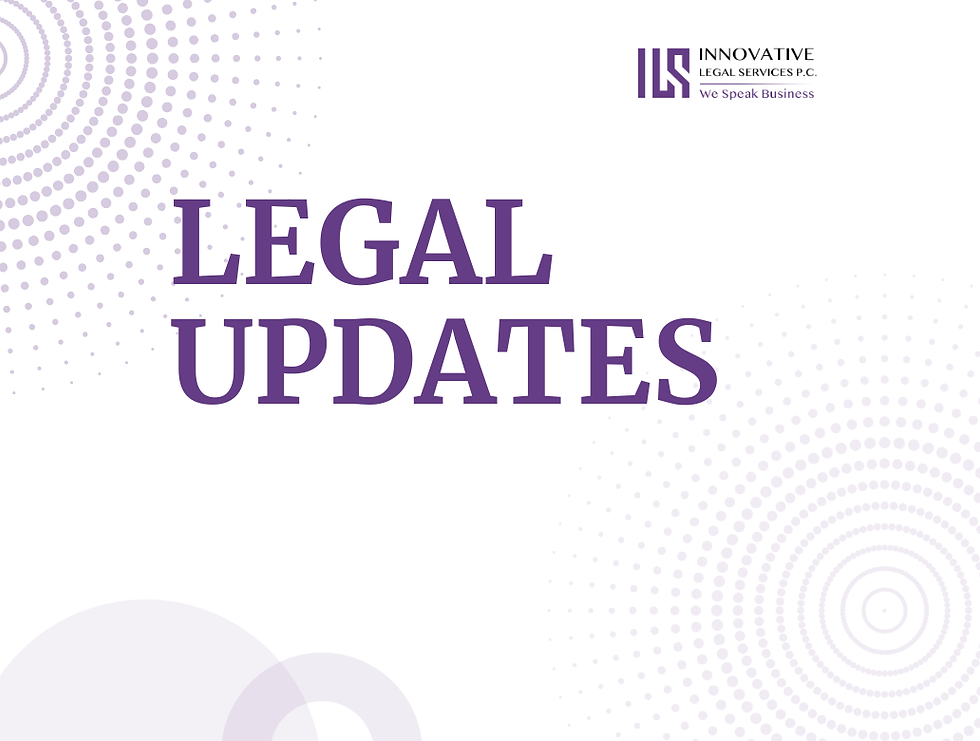California Judge's Lawsuit Over Salary Calculations Could Reshape Judicial Pay System
- Richard Liu
- Sep 17, 2024
- 3 min read
A recent lawsuit filed by Sacramento County Superior Court Judge Maryanne G. Gilliard has raised important questions about how judges’ salaries are calculated in California. Judge Gilliard claims that the state is underpaying its judicial officers by incorrectly applying salary increases, an issue that could have far-reaching implications for the judicial system and beyond.
For additional information regarding this case, please contact our Managing Partner, Richard Liu, at richard.liu@consultils.com.

What’s the Issue?
At the heart of the lawsuit is the interpretation of California Government Code §68203(a), which mandates that the salaries of judges and justices be adjusted based on the average percentage salary increase given to California state employees. Judge Gilliard argues that CalHR has not followed the law, as it has only applied one category of salary increase—general salary increases—since the 2006-07 fiscal year, despite multiple opportunities for the legislature to amend or limit the types of salary adjustments included in the calculation.
The lawsuit contends that CalHR’s method is overly restrictive and inconsistent with the legislative intent. Gilliard seeks a court ruling that would compel CalHR to include all categories of salary increases, not just general salary increases, in its calculations. In addition, the judge is seeking back pay and benefits for herself and other judges dating back to the 2016-17 fiscal year.
Potential Implications for Judges Across the State
The outcome of this lawsuit could have widespread effects on the California judiciary. If successful, the case could lead to significant back pay for judges and justices who have allegedly been underpaid for several years. This would also set a precedent for how judicial salaries are calculated moving forward, potentially affecting all judges across the state.
The case also comes at a time when the Assembly recently passed AB 181, a bill that will give judges a 2.6% pay increase. While this pay increase is a step in the right direction, it does not address the broader concerns raised in Gilliard's lawsuit regarding how the state calculates salary adjustments.
Broader Judicial Staffing Issues in California
In addition to concerns about underpayment, California’s judiciary faces staffing challenges. Governor Gavin Newsom has appointed judges at a faster rate than many of his predecessors, yet the number of vacant positions continues to grow. As of August 2024, there were 108 vacant superior court judgeships, up from 82 at the beginning of the year. With cost-of-living adjustments factored in, California's judicial salaries rank 25th in the nation, which may be contributing to the state’s difficulties in filling open positions.
Despite California being home to some of the highest-paid appellate court justices in the country, many judges feel that their compensation does not adequately reflect the cost of living or their workload. This ongoing issue will likely continue to be a point of debate, particularly in light of the current lawsuit and the broader conversation around judicial pay.
Conclusion
The lawsuit brought by Judge Gilliard shines a spotlight on judicial compensation practices in California and could lead to significant changes in how the state determines pay for its judges and justices. As this case unfolds, it will be important for all stakeholders in the legal community to monitor the developments and consider how these changes might impact the future of the judiciary in California.
For additional information regarding this case, please contact our Managing Partner, Richard Liu, at richard.liu@consultils.com.
Disclaimer: The materials provided on this website are for general informational purposes only and do not, and are not intended to, constitute legal advice. You should not act or refrain from acting based on any information provided here. Please consult with your own legal counsel regarding your specific situation and legal questions.

Richard Liu, Esq. is the Managing Counsel of ILS. He serves clients as a management-side defense lawyer specializing in employment and business litigation. Richard is also an expert on litigation prevention and compliance. He regularly advises Fortune 500 companies and startups on employment, labor, and commercial matters.
Email: richard.liu@consultils.com | Phone: 626-344-8949
*Disclaimer: This article does not constitute legal opinion and does not create any attorney-client relationship.

Comments